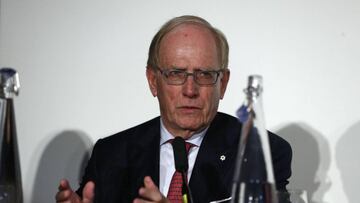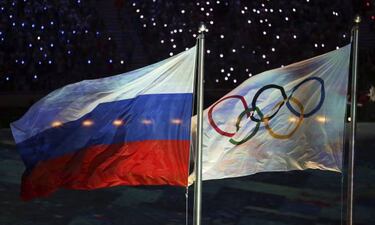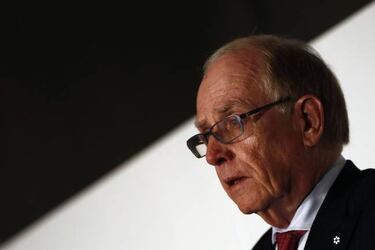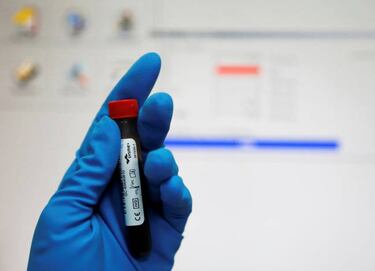Salt, coffee used to change failed Russian samples
Doping mastermind-turned-whistleblower Grigory Rodchenkov used salt, coffee, water and sediment to cover up the manipulation of samples, according to the McLaren report.

Doping mastermind-turned-whistleblower Grigory Rodchenkov used salt, coffee, water and sediment to cover up the manipulation of samples, according to the McLaren report.
The former head of Moscow's main anti-doping laboratory, now in hiding in the United States, had to resort to desperate measures because of the "potential time bomb" of being found out by the World Anti-Doping Agency (WADA), the report said.

Who is Rodchenkov?
Rodchenkov was an FSB intelligence agent as well as laboratory director who took charge of doping which McLaren said started in 2011 if not earlier. Part of his job was to report on WADA activities to the secret service.
The report said Russian officials started to panic about the risks of being caught in the run-up to the London Olympics which McLaren said was corrupted on an "unprecedented" scale.
It indicated several times that sports minister of the time, Vitaly Mutko, who is now a deputy prime minister, was implicated in the events.
Rodchenkov was absent through illness for much of 2011.
"After Dr. Rodchenkov's return, various steps and actions were initiated by the (ministry of sport) under the leadership and knowledge of both Minister Mutko and Deputy Minister Nagornykh, with direct involvement of the Federal Security Service (FSB)," said the report.

Institutionalised Planning
It added that doping was a mixture of "uncontrolled chaos to institutionalised, controlled and disciplined" planning.
Russia was particularly anxious about the London Olympics and Rodchenkov developed a "cocktail" that would make banned substances more difficult to detect.
WADA stepped up testing of Russian athletes from May to July 2012 and 67 samples from 56 athletes were sent to the Moscow laboratory.
McLaren said positive tests were reported to the sports ministry and false results sent to the WADA computerised system.
Rodchenkov realised he was "sitting on a potential time bomb" when WADA requested that samples meant to be stored in Moscow be sent to the Lausanne laboratory for new tests.
He knew that 10 of the samples on the list were "dirty" but had only clean urine for eight of the athletes involved.

He also added salt and coffee to put off WADA experts.
"He (Rodchenkov) altered the clean A samples either by diluting with water, adding salt, sediment or Nescafe granules when needed to match the specific gravity and appearance of the dirty B samples," McLaren said.
Russian athletes involved
The report named Anastasiya Kapachinskaya, who won a silver in the Russian 4x400m women's relay team in Beijing in 2008, and Darya Pishchalnikova, who took silver in the women's discus in London, as two of the athletes involved.
Rodchenkov said that Pishchalnikova "was considered untouchable throughout her career, meaning that none of her samples would or could be reported positive."
But he had no clean urine to replace her sample. "So he substituted her dirty urine with her own less dirty urine from a prior sample." But steroids were found in both tests conducted outside Russia.
Some 67 Russian samples at the Lausanne laboratory were mysteriously destroyed in March 2013.
"The destruction was alleged to have been an accidental error due to an administrative misunderstanding within the Laboratory," said the report.
Lack of evidence
The commission "did not accept this explanation but, in the light of a lack of evidence, was unable to pursue the matter any further."
Rodchenkov and other whistleblowers said they were certain there would have been more failed tests had the samples been saved and analysed again.
Related stories
"This saga was an early demonstration of the process where every WADA action triggered a Russian cover up reaction," said the report.
The use of salt continued in following years. McLaren's report said "physiologically impossible" levels of salt were found in samples provided by three medal-winning athletes at the 2014 Sochi Olympics.